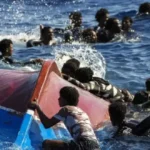Mozambique and Rwanda have formally signed a Status of Forces Agreement (SOFA) in Kigali, providing a long-awaited legal framework for Rwandan troops deployed in Mozambique’s troubled Cabo Delgado province. The deal was signed on Wednesday by Rwanda’s Defence Minister Juvenal Marizamunda and Mozambique’s Defence Minister Cristóvão Chume during President Daniel Chapo’s working visit to Rwanda.
The agreement, the first of its kind since Rwandan forces arrived in Cabo Delgado in July 2021, establishes rules governing the operations of foreign troops on Mozambican soil. A SOFA typically outlines privileges, immunities, jurisdiction over offences, customs duties, and administrative arrangements, ensuring accountability and legal clarity for military deployments.
Rwandan forces were initially deployed as a 1,000-strong contingent of soldiers and police officers but have since grown to an estimated 5,000 troops. Their presence has played a key role in countering jihadist insurgents linked to the Islamic State (IS), who continue to launch deadly attacks across northern Mozambique.
Until now, Rwanda’s deployment operated under a secretive bilateral agreement signed by former President Filipe Nyusi. That deal was never submitted to Mozambique’s Parliament for ratification, leaving questions over the duration, renewal terms, and full scope of operations.
President Paul Kagame has consistently defended Rwanda’s role, stressing that Africa must lead its own fight against terrorism instead of relying on external actors. This position highlights Rwanda’s growing reputation as a continental military power.
The signing comes amid renewed insurgent activity. On 25 August 2025, IS-linked militants killed two civilians in Uvilili village, near TotalEnergies’ Afungi camp in Palma district. The attackers ambushed the victims while they were farming, later claiming responsibility through IS propaganda channels. On the same day, insurgents killed four civilians in Mapate, Muidumbe district.
According to humanitarian agencies, 57,000 people (13,300 families) were displaced between 20 July and 3 August following intensified raids in Muidumbe, Ancuabe, and Chiure. Civilians continue to face devastating consequences as insurgents exploit forest corridors for ambushes and movement between coastal and inland zones.
The renewed violence has forced TotalEnergies to heighten security measures, restricting subcontractors’ staff movements to within camp perimeters. Mozambique’s Defence and Security Forces have responded with additional deployments, but the insurgency remains a persistent threat.
With the new SOFA in place, observers say the agreement may help strengthen coordination, improve accountability, and enhance the legitimacy of Rwandan military operations in Mozambique. However, questions remain over transparency, parliamentary oversight, and the long-term sustainability of foreign military support in Cabo Delgado’s volatile security landscape.














Leave a comment